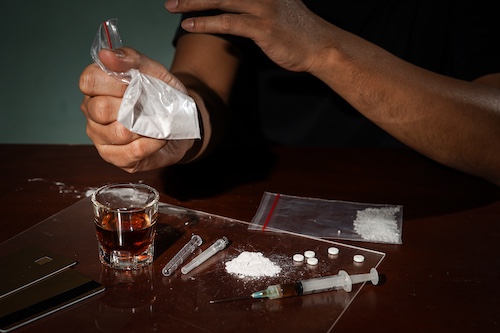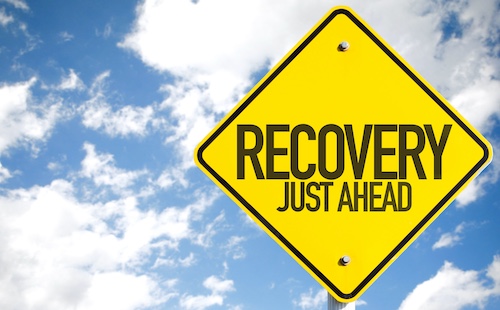Cross-Addiction: Understanding the Cycle of Trading One Addiction for Another
At Carolina Recovery in Durham, North Carolina, we provide professional care for drug addiction, alcohol addiction, and substance use disorder. Our services include inpatient and outpatient treatment, medication-assisted care, supervised detox, and family therapy. Clients receive support from licensed therapists, master-level counselors, and experienced recovery coaches. Each treatment plan is individualized, addressing both substance use and mental health needs, while guiding every client from detox through long-term recovery.
Cross-addiction occurs when a person in recovery replaces their initial addiction with a new substance or behavior. This process, also called addiction transfer, is common in individuals with substance use disorder and addictive tendencies. A recovering addict may stop drinking alcohol but turn to prescription medication, gambling addiction, or other compulsive behaviors. Without awareness, these substitute addictions can damage physical health, mental health, and relationships. Understanding cross-addiction is the first step in protecting long-term recovery and preventing harmful behaviors from taking control.
In this blog, we explain what cross-addiction is, why it happens, the most common forms it takes, the dangers it creates, and the treatment options available at our Durham substance abuse treatment center at Carolina Recovery.
What is Cross-Addiction?
Cross-addiction happens when a person replaces one addiction with another. It is also called addiction transfer or substitute addiction. This shift can occur with substances or behaviors, creating new harmful patterns while hiding underlying issues.
Definition of Cross-Addiction
Cross-addiction means developing dependence on a new substance or behavior after stopping the original addiction. A recovering addict might move from alcohol to prescription medication or from drug misuse to gambling addiction. In both cases, the brain’s reward system continues to seek stimulation, driving addictive tendencies.
Addiction Interaction Disorder
Many medical professionals describe cross-addiction as an addiction interaction disorder. This term highlights how one addiction can trigger another. For example, a recovering alcoholic may replace alcohol with excessive shopping or compulsive behaviors. Each new addiction brings its own risks, including financial consequences, physical health issues, and mental health struggles.
Substance and Behavioral Addictions
Cross-addiction affects both substance use and behavioral patterns. One substance, like opioids, may be replaced by another substance, such as prescribed medication. In other cases, an individual may turn to addictive behaviours like gambling, sex addiction, or exercise addiction. These behaviors can feel safer at first but can lead to physical dependence and emotional damage over time.
Why It Matters
Understanding cross-addiction is important for long term recovery. Without awareness, old habits and substitute addictions can prevent lasting sobriety. Recognizing the link between the initial addiction and a new addiction helps build healthy coping mechanisms and supports long term sobriety.
Why Cross-Addiction Happens
Cross-addiction develops because the brain and body remain vulnerable to addictive tendencies even after the initial addiction ends. Several risk factors increase the chance of trading one addiction for another.
Role of the Brain’s Reward System
The brain’s reward system drives people to repeat behaviors that release dopamine. When one substance or behavior is removed, the brain seeks another way to achieve the same chemical reaction. This cycle makes a recovering addict more likely to form a new addiction to a different substance or compulsive behavior.
Mental Health Issues
Mental health issues play a major role in cross-addiction. People with depression, anxiety, or bipolar disorder are at higher risk of substance misuse and addictive behaviours. Many attempt to self medicate with prescribed medication, alcohol, or harmful behaviors. Without addressing these underlying issues, recovery remains unstable.
Personality Traits and Family History
Some personality traits increase the risk of addiction transfer. Impulsivity, low self awareness, and poor emotional resilience are common factors. A family history of substance use disorder also raises the likelihood of multiple addictions, as some individuals are genetically predisposed to addictive tendencies.
Old Habits and Withdrawal Symptoms
In early recovery, withdrawal symptoms and stress make it easy to fall back on old habits. Instead of alcohol, a recovering alcoholic may turn to shopping addiction or exercise addiction as a coping mechanism. These substitute addictions may appear less harmful but can still damage physical health, financial stability, and personal relationships.
Why It Matters for Long-Term Recovery
Cross-addiction makes long-term recovery more difficult because it masks the real problem. Replacing one addiction with another prevents lasting change. Recognizing the risk factors and addressing them with healthy coping strategies and professional help is critical for building lasting sobriety.
Common Cross-Addictions
Cross-addiction can appear in many forms, involving both substances and behaviors. Some patterns occur more often than others and are known as the most common cross-addictions.
From One Substance to Another
Many people replace their original drug with a different substance. A recovering alcoholic may turn to prescription medication or misuse a new substance such as opioids or stimulants. This shift creates physical dependence and often results in more severe withdrawal symptoms.
Gambling Addiction
Gambling addiction is a common substitute addiction for individuals in early recovery. The excitement and risk stimulate the brain’s reward system in the same way as drugs or alcohol. This behavior can lead to financial consequences and emotional stress that damage long term recovery.
Sex Addiction and Compulsive Behaviors
Sex addiction and other compulsive behaviors such as pornography use can take the place of substance misuse. These addictive behaviours can disrupt relationships, lower self esteem, and create new mental health issues.
Exercise Addiction
Exercise addiction often begins as a positive coping mechanism but can quickly become excessive exercise. Over time, this behavior strains physical health and prevents balance in an individual’s life.
Shopping Addiction
Shopping addiction or excessive shopping is another common cross-addiction. While it may seem less harmful than substance use, it leads to financial problems, stress, and damaged positive relationships.
Why These Addictions Spread
All of these addictive tendencies share the same root cause. The brain seeks stimulation, and without healthy coping mechanisms, the recovering addict replaces one addiction with another. Recognizing these common cross-addictions is the first step in preventing harmful behaviors and protecting long term sobriety.
Identifying the Signs of Cross-Addiction
Cross-addiction often develops quietly, making it important to recognize early warning signs before the new addiction becomes harmful.
Replacing One Addiction with Another
One clear sign is replacing the initial addiction with a new substance or behavior. A recovering alcoholic may start misusing prescribed medication, or someone who stopped using drugs may develop gambling addiction. This shift signals addiction transfer and requires immediate attention.
Dependence on a New Substance
Relying on a different substance for stress relief is another warning. Misuse of prescription medication, alcohol, or stimulants in place of the original drug shows a developing physical dependence that can trigger withdrawal symptoms and relapse.
Compulsive Behaviors
Compulsive behaviors such as sex addiction, shopping addiction, or exercise addiction are also common indicators. These addictive behaviours create emotional highs and lows that mimic the effects of substance use disorder.
Emotional and Behavioral Changes
Changes in mood, self awareness, and coping mechanisms may signal cross-addiction. A recovering addict who avoids healthy coping strategies and turns to harmful behaviors often struggles with emotional resilience and self esteem.
Why Early Detection Matters
Spotting these signs early helps prevent substitute addictions from becoming permanent. Self monitoring, family support, and guidance from a medical professional improve the chances of long term recovery and protect against multiple addictions.
Treatment Options for Cross-Addiction
Cross-addiction requires structured treatment that addresses both the initial addiction and the substitute addiction. Professional care builds the foundation for long term sobriety.
Importance of Professional Help
Willpower alone is not enough to break cycles of multiple addictions. A medical professional can identify addictive tendencies, manage withdrawal symptoms, and address both substance use disorder and compulsive behaviors. Seeking professional help reduces the risk of relapse and supports lasting recovery.
Dual Diagnosis and Mental Health Care
Many people with cross-addiction also face mental health issues. Dual diagnosis treatment targets conditions such as depression, anxiety, or bipolar disorder while also treating substance misuse. This approach addresses underlying issues that often fuel addictive behaviours.
Structured Recovery Process
Treatment plans include therapy, support groups, and education about healthy coping mechanisms. Programs such as SMART Recovery and group therapy provide strategies to manage stress, improve self awareness, and build emotional resilience. These tools replace harmful behaviors with positive relationships and practical coping strategies.
Care at Our Durham Substance Abuse Treatment Center
At our Durham substance abuse treatment center, treatment focuses on the whole individual. Care includes addressing the original addiction, the new addiction, and the root causes of addictive behaviours. Our recovery process emphasizes building self esteem, developing coping strategies, and creating habits that support long term recovery.
Path to Long Term Sobriety
Treatment for cross-addiction is not a quick fix. It is a process of replacing old habits with healthy coping mechanisms and building support systems. With professional guidance and consistent care, individuals can achieve long term sobriety and protect their physical health, mental health, and quality of life.
Take the First Step Toward Lasting Recovery!
Cross-addiction does not have to control your future. With the right support, long term sobriety is possible. Our team at Carolina Recovery in Durham provides comprehensive treatment that addresses both the initial addiction and any new addictive behaviours. If you or a loved one are struggling with substance use disorder or cross-addiction, reach out to us ASAP.
Contact us at (812) 408-8842 for a free consultation today!







